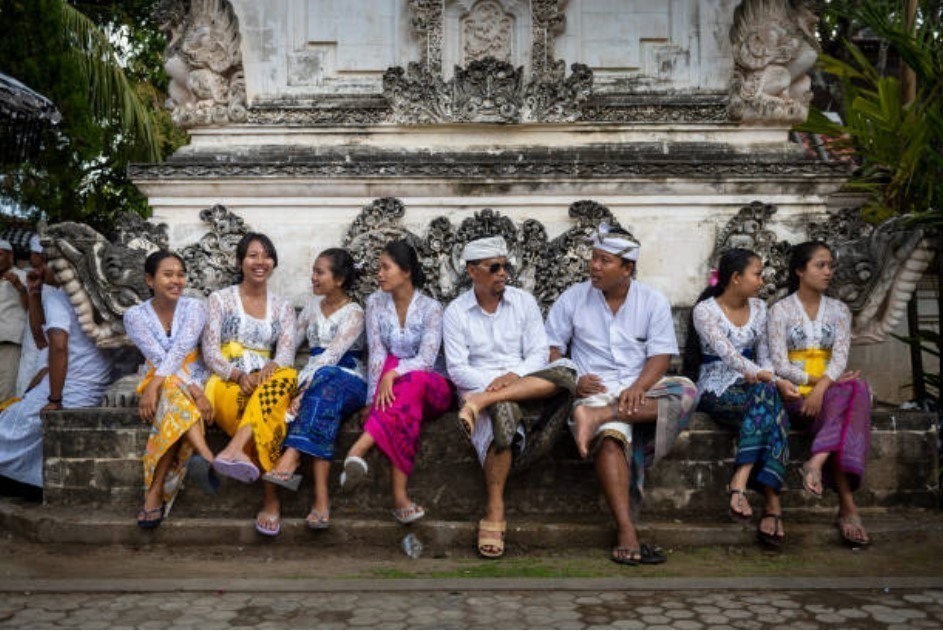Cultural norms = norms are the agreed‐upon expectations and rules by which a culture guides the behavior of its members in any given situation.
Below are some important norms to consider when in Bali:
Bodies & Body Language
Because Bali is majority religiously and culturally Hindu, there are some key things to keep in mind when it comes to body language. Firstly, the head is considered the holiest part of the body, while the feet are considered the most impure. As a result, it is considered disrespectful to touch someone’s head, and to point your feet or face the soles of your feet at someone.
It is also considered rude to use your left hand. That is because, like in many Hindu and Muslim settings and cultures, the left hand is used for cleaning the body / hygiene and thus considered impure. You should always use your right hand for everything from shaking hands, passing a plate of food, or even paying someone!
This concern relating to hygiene and holiness is also important to consider your appearance. It is most traditional to take care to be clean (recently showered) and well-kempt (hair done up, out of one’s face), especially when taking part in important activities such as ceremonies.
As previously mentioned, Balinese locals dress modestly and you will be expected to follow these guidelines in many cases. See the picture on the right for traditional Balinese garments, worn for holidays and formal activities. On a daily basis many people will dress in pants and shirts, but the frequent prayers and other ceremonies still require sarongs so these are also commonly worn with a t-shirt.

Finally, personal space is an important part of Balinese customs. It is not typical to be very physical with people, and aggressive movements can also be seen as rude (ei. patting someone on the back when greeting, ruffling someone’s hair).
In terms of personal space, remember the importance of consent when it comes to taking photos, videos, selfies etc. Always ask first and don’t shove your phone in anyone’s face.
There are also more reserved norms surrounding gendered physical contact. In general, heterosexuality is the norm and men and women who are not related should avoid touching each other, even in a casual way. Activities like hand-holding, hugging, and kissing are considered to be inappropriate in public for all but married couples. While this is not necessarily enforced for tourists, it should be especially respected in ceremonial or formal settings and those where there are children present.
Formal Rules
A small note to keep in mind in terms of rules set by the Indonesian government. When it comes to tourism, there are limitations on where visitors are welcome, at times due to the damage and disrespect some have inflicted over the past few years. Only go into authorized areas and respect all property. Do not cause public disturbances or engage in public aggression.
Holy Spaces
Many places and spaces in Bali are considered sacred. These can be temples (including the small ones at each family’s home), certain natural areas like beaches near temples or the mountains themselves, and ceremonial spaces.
Also, there is a taboo around menstruation and holiness, so you are not allowed to partake in these spaces if you are having a period. While this, like the norms around female modesty and clothing, may be perceived as discriminatory depending on your cultural background, it is key to respect these rules and religious customs when in Bali.
